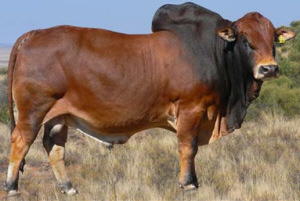Kenya’s proud legacy of Boran breeding took center stage this September as the Boran Cattle Breeders’ Society (BCBS) celebrated its 76th anniversary with a landmark show and record-breaking auction. The two-day event, held on 12–13 September at Woragus Farm in Laikipia, drew an international audience of breeders, ranchers, and investors from across Africa and Latin America — all eager to witness the remarkable resilience and performance of the Kenyan Boran.
A Showcase of Functionality and Quality
More than 200 Boran bulls, heifers, and steers were paraded before show judge PJ Budler, a world-renowned livestock expert who has judged on nearly every continent. Budler was visibly impressed.
“It’s rare to see a show of this scale, anywhere in the world, where the animals are so fundamentally functional — from their feet and udders to their fertility and fleshing ability,” he said.
He praised Kenya’s Boran for its “1,000 years of aggravated natural selection,” a process refined by generations of local breeders. “The result,” he added, “is one of the most functional and enduring beef breeds on earth.”
Celebrating Champions
The Supreme Champion Bull title went to Woragus 1697, bred by the Myatt-Taylor family, who also hosted the event. The bull, which dominated multiple classes, secured five trophies — including the Champion Junior Bull, Harold White Memorial Trophy, and Almatix Trophy.
Other top performers included:
-
Kifuku Estate 22-11 (Champion Female)
-
Frontier Cattle 2328 (Reserve Champion Female)
-
Kifuku Estate 24-28 (Reserve Champion Junior Bull)
Boran’s Global Appeal
Judge Budler described the Boran as “the tropically adapted solution to fertility, longevity, udder quality, and structural soundness.”
He emphasized that to truly understand the breed’s value, “you must see them in Kenya — grazing alongside wildlife, thriving at altitude, and proving their adaptability in the toughest conditions.”
Indeed, international guests from Brazil, Namibia, South Sudan, Tanzania, Uganda, the U.S., and Zimbabwe attended — a clear sign that the Boran’s reputation has spread far beyond East Africa.
High Standards in the Ring
Veteran stockman Giles Prettejohn applauded the high standard of cattle presented, especially the bulls.
“We saw one of the highest percentages of masculine young bulls ever,” he noted, while commending judges for penalizing over-conditioned heifers that might face breeding issues later.
Both Prettejohn and Budler emphasized that functionality must always come before showmanship — a message echoed throughout the event.
Studs in the Spotlight
While Woragus Boran Stud led the pack, other breeders also made their mark:
-
Suyian Ranch claimed second overall, showcasing consistency across classes.
-
Ol Pejeta Conservancy, Kenya’s largest Boran herd, secured five first prizes.
-
Sosian Boran Stud topped the younger heifer categories.
-
Newcomer Wachadima made an impressive debut, taking home both Best New Exhibitor and Fattest Steer trophies.
Meanwhile, Stanley & Son Stud, one of Kenya’s oldest names in Boran breeding, continued its legacy with multiple class wins.
Record-Breaking Auction
The excitement continued in the sales ring, where bids soared under South African auctioneer Andrew Miller. A single bull fetched KES 1.1 million (≈ R147,000), while a lot of three heifers broke records at KES 1.3 million (≈ R173,000).
The event made history as Kenya’s first-ever live-streamed Boran auction, thanks to Realtime Agri’s Martinique Scott and her platform Meerkat, connecting bidders and viewers across Africa.
A Breed for the Future
BCBS Chairperson Mark Myatt-Taylor emphasized that the Boran’s success lies in its natural adaptability, mothering ability, fertility, and tick resistance.
“Our Borans are raised in their natural environment and managed with good, old-fashioned stockmanship,” he said.
Despite there being only a handful of registered Boran studs left in Kenya, strict breed standards ensure that the country remains the birthplace and benchmark for global Boran excellence.
Heritage Meets Opportunity
As the 2025 Boran Show came to a close, one message resonated across the continent:
Kenya’s Boran is not just a national treasure — it’s a global solution for sustainable and profitable beef production.
“The Kenyan Boran represents both our heritage and the future of the world’s beef industry,” Budler concluded.



